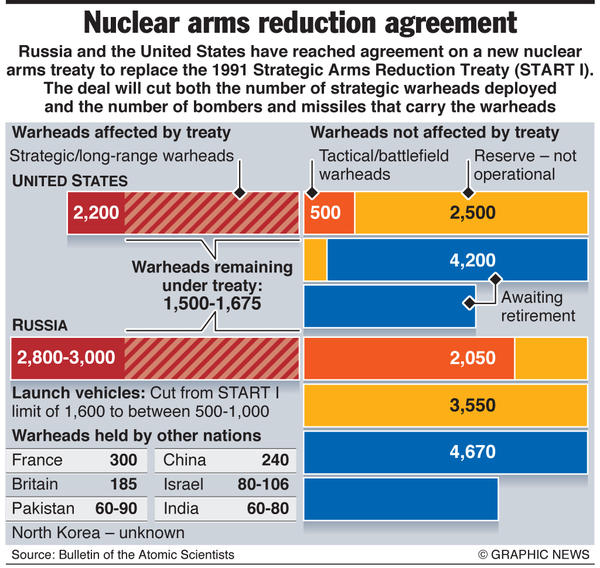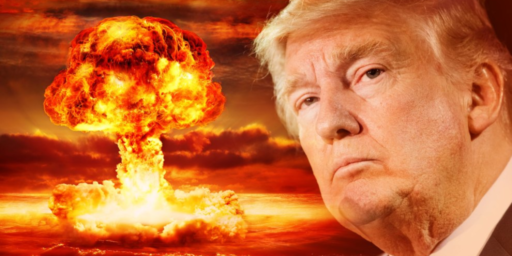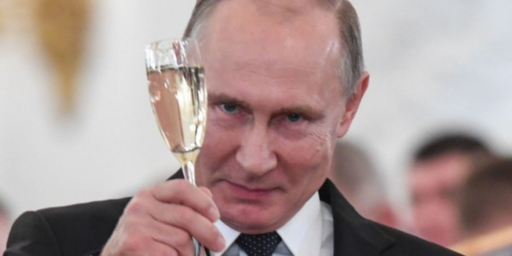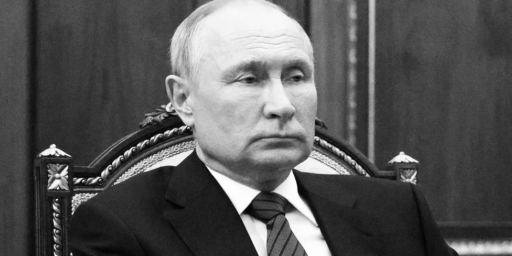Nuclear Treaty Symbolic But Useful
 President Obama announced this morning that he had reached an agreement with his Russian counterpart on a new START agreement. While I’ve generally been dismissive of Obama’s “Reset Button” approach to relations with Moscow, I believe this treaty was a no-brainer.
President Obama announced this morning that he had reached an agreement with his Russian counterpart on a new START agreement. While I’ve generally been dismissive of Obama’s “Reset Button” approach to relations with Moscow, I believe this treaty was a no-brainer.
I explain why in my New Atlanticist piece, “Nuclear Treaty a New START.”
The bottom line is that there’s simply no conceivable reason for the United States and Russia to maintain such massive stockpiles. Both countries have, quite easily, more than twice the number of strategic weapons as the rest of the planet combined. So easily, in fact, that it will still remain the case once we’ve cut to the new limits. France, the third most dominant nuclear power, has 300 warheads. China has 180 and the UK 160. Having 1550 warheads — or, indeed, 550 warheads — would still be more than adequate to meet any possible deterrent need.
As a senior White House official told me in a blogger conference call, the treaty is also important because the old inspections regime expired December 5th and we very much want to have the confidence building that vigorous inspections provide. But, frankly, it’s in United States interests to reduce our arsenals irrespective of what the Russians do.
More to the point, the cuts are not only symbolically important in signaling reduced tension between the former Cold War superpowers but they’re pure win. At zero loss of security or the sense thereof, the two powers shed a massive problem: large stockpiles of rapidly decaying, obsolete weapons that must be maintained, safeguarded, and otherwise dealt with at great cost. Cutting back by a third is better than printing money. And both sides could use a little more cash right about now.
The Cold War is over. Russia hasn’t turned into Sweden by any stretch of the imagination but the need for massive, overlapping redundancies in nuclear forces has been gone for a long time. I can’t remember the last time I heard anyone who knew anything about nuclear strategy argue otherwise.
Amusingly, I had the post 95% percent written before getting invited (or reminded about an invitation that I hadn’t seen) to the call. For whatever reason, the administration is not talking about the economic benefits at all. I’m scratching my head over that, as it’s easily the biggest selling point.





Agreed, though I suspect this will be portrayed as appeasement.
Steve
Obama has sold America out. If there’s ever a nuclear war Blagoveshchensk could get off scot free. Them and their rail spur connecting to the Trans-Siberian railroad.
I am thinking “surrender” will work its way into the mix…